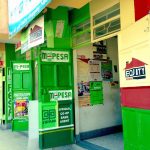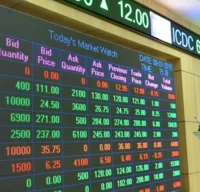Equity Bank’s differentiated business model has earned rare reviews after being mentioned in a Harvard University authored book which lists innovative models that have thrived in tough African economies.
The book, The Africa Business Revolution: How to succeed in the world’s next big Growth Market details how the African market is offering growth oriented companies exciting opportunities based on Africa’s fast growing economy, urbanization and a youthful population.
Harvard’s book also states that the continent’s rapid adoption of technology makes it a fertile arena for innovation.
Equity Group Chairman Dr James Mwangi welcomed the recognition saying that the bank’s dynamic business model has enabled the lender maintain it’s success thus far.
He said the bank’s move to accredit more than 30,000 small retail outlets across the country as bank agents has proved to be one of it’s best decisions.
The bank is already looking ahead at future innovations. Social media is the next channel for banking, so Equity’s next big focus is channel innovation.
{Read: Fraud! Your car insurance may be fake}
Equity is also looking beyond financial services and building a new business in the healthcare space—a network of medical centers called Equity Afia.
The inspiration came from charitable foundation, which has awarded some 6,000 university scholarships to academically gifted students from across Kenya.
“Social impact is embedded in DNA, and it is what has enabled Equity Bank to scale: today it is the biggest bank, by market capitalization, in East and Central Africa,” said Dr Mwangi “We see the bank not just as a company but as a movement for socioeconomic transformation. People see themselves as part of that movement,”
Other key business leaders in the continent dived on to insights on how their business models have made them trailblazers.
Also among the key business leaders was Aliko Dangote, president and CEO, Dangote Industries who talked up forging Africa’s Industrial Revolution.
According to him an essential strategy to build a resilient manufacturing business is to diversify as much as possible.
“There’s no sector that’s permanently healthy—if, today, cement is excellent in Nigeria, it might not be in the next five years—so we’re fully diversified across different products, as well as downstream, midstream, and upstream,” said Dangote.
{See also: KCB to pay ten shillings to acquire Imperial Bank}
Other leaders included in the publication are, Fred Swaniker, founder, African Leadership University, Graça Machel, chair, Graça Machel Trust and Nadia Fettah, CEO, Saham Finances.













1 Comment